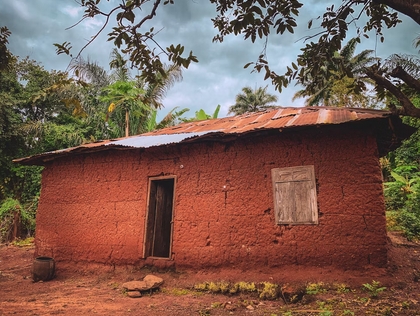
support@yorubalibrary.com
+2348073529208, 07038599574

Yoruba architecture is a testament to the ingenuity and creativity of the Yoruba people. Among the most iconic structures in Yoruba architectural history are the traditional mud houses. These homes are not only functional but also deeply embedded with cultural significance.
Historical Significance of Yoruba Mud Houses
The traditional mud houses of the Yoruba people have been constructed for centuries. They represent a sustainable and practical solution to housing, using locally available materials such as mud, thatch, and wood. These houses were often built in a communal effort, reflecting the strong sense of community among the Yoruba people.
Construction Techniques
The construction of Yoruba mud houses involves a combination of techniques that have been passed down through generations. The walls are typically made from a mixture of mud and water, sometimes reinforced with straw or other natural fibers. The roofs are usually thatched with palm leaves or other locally sourced materials.
One distinctive feature of Yoruba mud houses is their thick walls, which provide excellent insulation against the heat, keeping the interiors cool even during the hottest days. The walls are often smoothed and sometimes decorated with intricate patterns or designs that add to the aesthetic appeal of the home.
Cultural Importance
Yoruba mud houses are more than just dwellings; they are a reflection of the culture and values of the Yoruba people. The layout of these houses often includes a central courtyard, which serves as a communal space for family gatherings, ceremonies, and other social activities. This design emphasizes the importance of family and community in Yoruba culture.
The architecture also reflects the social status and wealth of the inhabitants. Larger, more elaborately decorated houses were typically owned by wealthy individuals or families, while simpler structures were home to those of more modest means.
Adaptation to the Environment
The design and construction of Yoruba mud houses are well adapted to the local environment. The thick mud walls and thatched roofs provide natural cooling, making the homes comfortable in the tropical climate. The materials used are also sustainable and environmentally friendly, making these houses an excellent example of eco-friendly architecture long before it became a modern trend.
Preservation and Modern Influence
Today, while modern construction methods and materials are increasingly being used, there is a growing interest in preserving traditional Yoruba architecture. Efforts are being made to restore and maintain old mud houses as cultural heritage sites. Additionally, contemporary architects are drawing inspiration from these traditional designs, incorporating elements of Yoruba mud houses into modern buildings.
Conclusion
The mud houses of old Yoruba architecture are a remarkable blend of functionality, sustainability, and cultural expression. They stand as a testament to the resourcefulness and rich heritage of the Yoruba people, continuing to inspire and influence architectural practices today.

Learn about the Yoruba concept of Ìwà Pẹ̀lẹ́ (good…

Learn special praises for Divine Being and Creator…